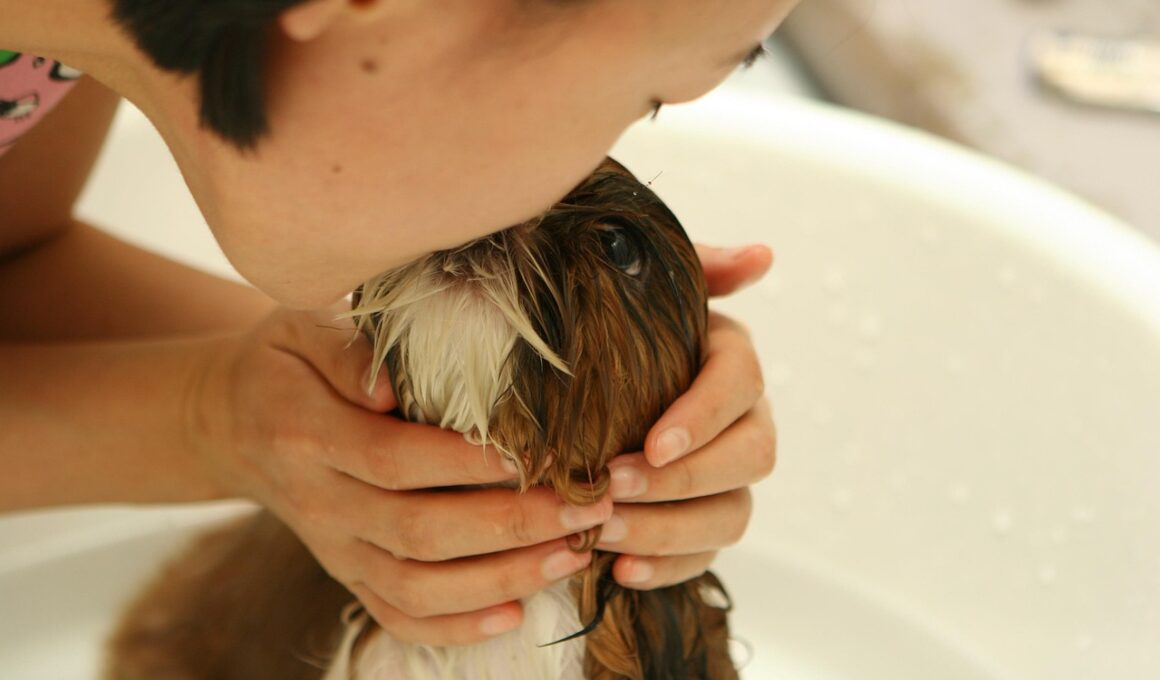Preventing Periodontal Disease in Dogs: Tips for Pet Owners
Periodontal disease is a common yet serious dental problem affecting dogs. It begins with the buildup of plaque on the teeth, leading to inflammation of the gums, known as gingivitis. If left untreated, this can advance to periodontitis, causing painful infections and even tooth loss. Regular dental care is crucial for prevention and maintaining your dog’s overall health. As a pet owner, your role in preventing these dental problems cannot be understated. Establishing a dental care routine should be a priority. This encompasses regular brushing, professional cleanings, and dental chews that can help keep your dog’s teeth healthy. Make sure to choose soft-bristled toothbrushes and toothpaste designed specifically for dogs. Daily brushing is recommended, as it can remove plaque before it hardens into tartar. Also, consider incorporating dental treats and toys into your dog’s routine. These not only help clean teeth but also provide mental stimulation. Additionally, regular veterinary check-ups will allow your vet to monitor your dog’s dental health and address any concerns early, thereby ensuring your dog’s happiness and well-being.
Recognizing the symptoms of periodontal disease is essential for prompt intervention. Bad breath is often the first sign pet owners notice, and it can indicate underlying dental issues. Other common symptoms include difficulty eating, swollen or bleeding gums, and loss of appetite. If your dog shows any of these signs, it’s important to consult your veterinarian promptly. They can perform a thorough dental examination and recommend appropriate treatment options. Professional dental cleanings by a veterinarian should be scheduled at least once a year, depending on your dog’s breed and dental health. For some breeds that are prone to dental issues, more frequent cleanings may be necessary. Alongside regular cleanings, implementing a home dental care routine can significantly impact your dog’s dental health. You might want to consider incorporating dental water additives into their routine. These products can help reduce plaque and tartar buildup effectively. Always ensure you choose products that are approved for use in dogs, as some human solutions may be harmful. Additionally, keeping an eye on your dog’s chewing habits and ensuring safe chewing options can contribute significantly to their oral health.
Choose the Right Diet for Dental Health
Your dog’s diet plays a major role in their dental health and can contribute greatly to preventing periodontal disease. Foods that are specifically designed for dental health often include special ingredients that help to reduce plaque and tartar buildup. They typically have a unique texture that mechanically cleans the teeth as your dog chews, making them an excellent choice for maintenance. Opting for high-quality, veterinarian-approved brands is essential. Additionally, integrating dry kibble into their diet instead of exclusively wet food can offer natural scraping against your dog’s teeth during meals. Moreover, consider introducing raw vegetables, like carrots or cucumber slices, into your dog’s diet as crunchy snacks. These can significantly aid in cleaning their teeth and providing essential nutrients. Be cautious to avoid giving them harmful foods like bones, which may splinter, leading to injuries. Instead, you can find dental chews that are specifically formulated to support oral health. Keeping your dog’s diet balanced not only supports dental health but also enhances overall well-being. Consult your vet on the best dietary options tailored for your dog’s individual needs.
Regular dental check-ups with your veterinarian are crucial for early detection of periodontal disease. Your vet can perform professional cleanings, which involve scaling, polishing, and sometimes x-rays to assess the health beneath the gum line. They can detect early signs of periodontal disease and provide treatment to prevent progression. Vets can also advise on the most effective methods for home dental care tailored to your dog’s breed and size. Providing timely dental care can spare your dog from unnecessary pain and can extend their lifespan. Therefore, it is essential to make these regular check-ups part of your routine. Being proactive in your dog’s dental health will allow you to monitor changes and ensure they are happy. It can also offer new insights into your dog’s overall health, revealing potential problems before they evolve into serious issues. Keeping records of your dog’s dental health can help in future evaluations. Make sure to ask your vet questions about any observed changes in your dog’s mouth or behavior. This dialogue is crucial to maintaining your pet’s oral health.
Incorporate Dental Hygiene into Daily Routine
Incorporating dental hygiene into your dog’s daily routine can significantly contribute to preventing periodontal disease. Begin by establishing a schedule for brushing their teeth. Ideally, brushing should be performed daily; however, several times a week can also be beneficial if daily brushing isn’t feasible. Start slowly; allow your dog to get accustomed to the toothbrush and toothpaste gradually. Positive reinforcement plays a crucial role — reward your dog with praise or treats after brushing to create a positive association with the experience. Additionally, choosing the right tools is essential. Specially designed dog toothbrushes and toothpaste are formulated for their specific dental needs. Always avoid human toothpaste, as it can be toxic to dogs. Consider utilizing dental wipes if your dog resists brushing, as these can help clean their teeth without the need for a brush. Moreover, you can encourage your dog to chew on dental toys, which can provide them natural dental cleaning through play. Ensuring that dental care is fun and engaging will encourage your dog to maintain proper hygiene.
Another effective way to prevent periodontal disease is to educate yourself on dental health. Knowledge empowers you to recognize warning signs and take proactive measures. Always stay informed about the latest dental care products and practices that suit your dog’s specific needs. Many dog owners remain unaware of the significant impact poor dental health can have — it may lead to serious systemic conditions affecting heart, liver, and kidneys. Becoming aware of such associations aids in understanding the importance of proactive oral care. Research various dental health resources online, including veterinary blogs and forums where experienced pet owners share tips. Participating in dog training sessions can also help you learn proper handling techniques for brushing and examining your dog’s teeth. Furthermore, engage with your veterinarian in discussions regarding preventative care strategies. Regularly scheduled visits allow you to gather tailored advice and guidelines. Ensure to ask any specific questions you may have about your dog’s dental condition as pawed pets may react differently to treatments. Such engagement fosters a proactive approach to your dog’s health and empowers you as a responsible pet owner.
Conclusion
To summarize, preventing periodontal disease in dogs requires a combination of regular dental care, a healthy diet, and routine veterinary check-ups. As a pet owner, being proactive is key to ensuring your dog has a healthy mouth and overall well-being. Initiating a dental routine may seem challenging at first, but gradually introducing dental care will make it a manageable aspect of pet ownership. Keeping your dog’s mouth fresh and clean not only promotes healthy gums and teeth but also contributes significantly to their quality of life. Periodontal disease is not only uncomfortable; it can lead to more severe health issues for your beloved pet. Through vigilance and education, you can create a healthy environment conducive to maintaining your dog’s dental health effectively. With patience and commitment, incorporating these practices can help ensure your furry companion enjoys many happy years. Always remember that dental prevention leads to overall health improvements and longevity. Cherish your pet’s presence by keeping their oral hygiene a priority and showing them the love they deserve.


